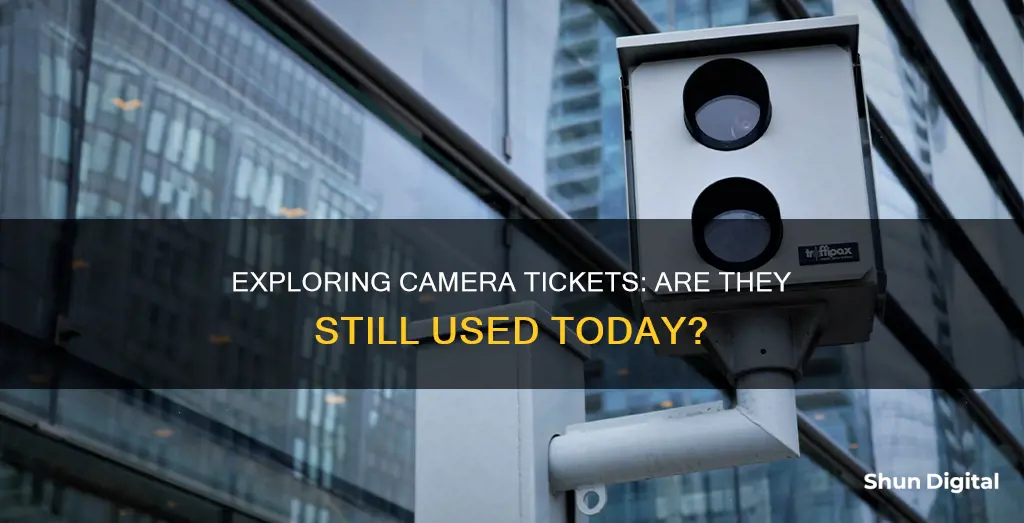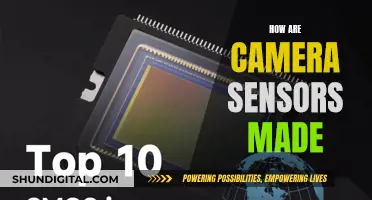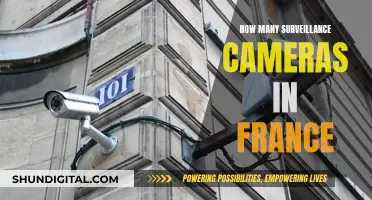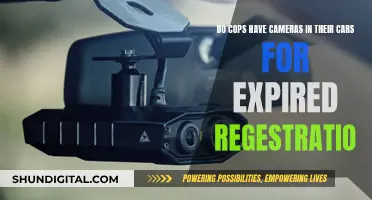
Traffic cameras are still used in many places, including Illinois, California, Ohio, and Virginia. These cameras are used to monitor and enforce traffic laws, such as speeding and running red lights. While the use of these cameras has faced legal challenges and varying levels of enforcement across different states and cities, they can still result in tickets and penalties for drivers. So, while the existence and enforcement of camera tickets vary depending on location, they do still exist and drivers should be aware of their presence and potential consequences.
| Characteristics | Values |
|---|---|
| Are camera tickets enforceable? | Yes |
| Can you ignore a camera ticket? | No, it may result in an increased fine, a court summons, and a negative impact on your driving record |
| Do camera tickets go on your record? | No, they are usually considered civil violations |
| Do camera tickets affect insurance? | No |
| Do you have to pay camera tickets? | Yes, unless you choose to fight it |
| How do you fight a camera ticket? | Present evidence that the camera didn't function correctly, that the speed limit signs were unclear or not visible, or that you were not driving the car |
| What happens if you don't pay a camera ticket? | The fine increases, and you may receive a court summons |
What You'll Learn

Camera tickets are enforceable and can lead to license suspension in Ohio
Camera tickets are enforceable in Ohio, and failure to respond to them can lead to serious consequences. While they are not considered criminal violations, these tickets can result in fines, higher insurance premiums, and negative impacts on your credit score.
Ohio has utilized camera tickets for traffic violations since the early 2000s. Over 20 cities in the state rely on camera tickets to enforce traffic rules, particularly in areas with red-light cameras and speed cameras. While the use of these cameras has decreased due to legislation requiring the presence of a law enforcement officer, they still exist in several cities, including Dayton and Akron.
If you receive a camera ticket, it is essential to take it seriously. While it won't go on your driving record, ignoring the ticket will result in increased fines. Additionally, failure to respond or appear in court can lead to driver's license suspension, making it impossible to renew your license or register a new vehicle until all fines and fees are paid.
To address a camera ticket, you have a few options. You can choose to pay the penalty, provide information on who was driving if it wasn't you, or request to challenge the ticket before a hearing officer. Each of these options typically has a time limit, and failing to act within the specified timeframe can result in late fees and further legal consequences.
It's important to note that camera tickets are not the same as traditional tickets. They are considered civil violations, and while they won't result in license suspensions or affect your insurance rates directly, they can still have financial implications and cause inconveniences if left unpaid.
Troubleshooting Eufy Camera Charging Issues
You may want to see also

Camera tickets are considered civil violations in Ohio
The legality of traffic cameras in Ohio is based on state law, individual city ordinances, and court rulings. While Ohio law permits the use of traffic cameras, it does not mandate their use, and each city can establish its own guidelines and procedures. Some cities in Ohio, such as Garfield Heights, have chosen to remove traffic cameras due to the high costs of operating and enforcing them.
Traffic camera tickets in Ohio face several legal challenges, including issues with driver identification, violations of equal protection and due process clauses, and contradictions with city traffic codes. According to Section 4511.093 of the Ohio Revised Code, traffic cameras can be used to detect and enforce traffic law violations only if a law enforcement officer is present at the location of the device during its operation and if certain other stipulations are met.
Ignoring a camera ticket may result in increased fines and a negative impact on your driving record. It is recommended to either pay the ticket or dispute it in court. If you choose to dispute the ticket, you can present evidence that the camera was not functioning correctly, the speed limit signs were unclear or not visible, or you were not the driver at the time of the violation.
Get Camera Raw Plugin: Copy and Paste Guide
You may want to see also

Camera tickets are legal in California
Red-light camera tickets are the second most common ticket dealt with by California traffic lawyers. They are expensive, ranging from $490 to $525, and are often seen as an attractive source of revenue for state and county governments.
If you receive a camera ticket, the first step is to check if it is a Snitch Ticket. These are fake tickets sent out by the police to get car owners to identify the driver. Snitch Tickets say "Courtesy Notice-This is not a ticket" at the top, and you can ignore them.
If you are issued a real camera ticket, it is important to know your rights. The cameras must adhere to strict rules and regulations set by state law for the tickets to be valid. If the cameras fail to comply with these rules, it is usually grounds for a full dismissal. The burden of proof is on the camera company and officiating officer to prove beyond a reasonable doubt that the person named on the ticket is the same individual in the photos.
Additionally, if you were not the driver of the vehicle, this is also grounds for dismissal. The burden of proof is on them to prove that the person named on the ticket is the same as the person in the photos, which they cannot do if you were not driving.
In conclusion, while camera tickets are legal in California, there are ways to fight them. The high cost of these tickets and the fact that they are often seen as a revenue stream for local governments may provide motivation for drivers to contest them.
SimpliSafe Camera Battery: Always-On or Battery-Operated?
You may want to see also

Camera tickets are not valid debts in Ohio
As a result, you cannot lose your license or have your registration suspended. Although these tickets can be sent to "collections", they cannot be reported to the credit bureaus. If you receive a collection letter, you can ask the collection agency to prove that you owe the debt, which they cannot, and they will have to stop contacting you after the 30-day limit.
The only thing a municipality could do is file an official civil judgment or start civil proceedings against the registered owner, but this is rare and typically requires a fee. In addition, the Ohio Supreme Court has ruled that the state can discount the municipalities' budgets by the amount they have generated through speed traffic violations, which has led some cities to halt their traffic camera programs.
Therefore, while camera tickets may result in fines or other consequences, they are not considered valid debts in Ohio and cannot affect your credit score or standing with credit agencies.
Galaxy S7 Camera Mode Mystery: Where Did It Go?
You may want to see also

Camera tickets are not considered moving violations in Illinois
Camera tickets, also known as red light camera tickets, are still very much in use in Illinois. These cameras are typically mounted on traffic lights at busy intersections and take pictures of vehicles when they drive through a red light. The footage captured by these cameras can be incriminating, and it is nearly impossible to dispute a ticket based on the evidence they capture.
While camera tickets are not considered moving violations in Illinois, they still come with consequences. If you ignore a camera ticket, you will face additional fines, and the city of Chicago can even boot and seize your vehicle. While your license won't be suspended for ignoring a camera ticket, failing to pay the fine and associated fees can result in vehicle seizure.
In Illinois, traffic violations are divided into two categories: moving violations and non-moving violations. Moving violations occur when a motor vehicle is in motion, such as speeding, overtaking a school bus, disobeying traffic signs, texting while driving, or driving under the influence of alcohol or drugs (DUI). These violations are considered more serious and carry more severe penalties, including points on your driving record.
On the other hand, camera tickets are considered administrative violations, similar to parking tickets. They are not placed on your driving record, and your insurance rates will not increase as a result. However, it's important to note that running a red light is illegal and dangerous, and if you cause an accident by doing so, you may face serious legal consequences and be held liable for any injuries or damages that occur.
ADT Doorbell Camera: Battery-Powered or Not?
You may want to see also
Frequently asked questions
Yes, camera tickets are still issued in some states.
Camera tickets are enforceable and can lead to consequences such as fines, court summons, and driver's license suspension if not addressed.
Ignoring a camera ticket may result in an increased fine, a negative impact on your driving record, and a court summons, which will incur additional legal fees and time.
Camera tickets are typically considered civil violations or civil penalties and do not appear on your driving record. However, failure to address the ticket can result in other consequences.
You have a few options when you receive a camera ticket. You can choose to pay the citation and accept liability, dispute the ticket in court, or seek legal advice to understand your options and the best course of action.







